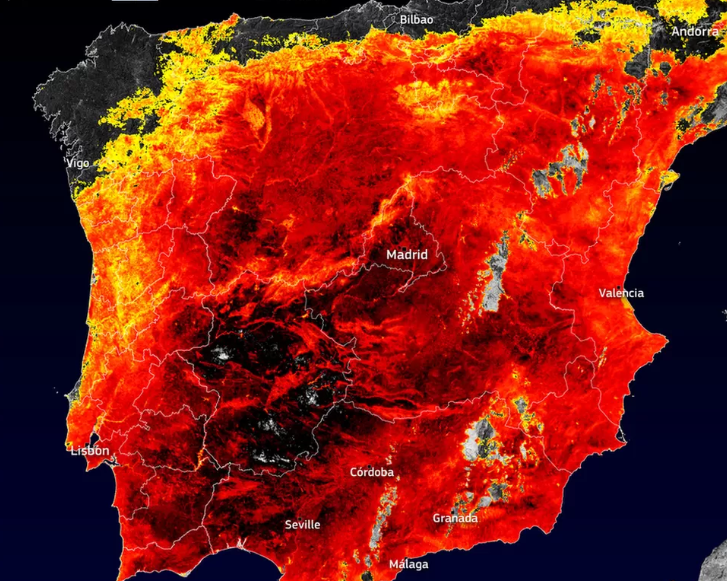The Greek authorities closed the Acropolis in Athens as an intense heat wave sweeps across the region. The historical monument and one of the country’s biggest tourist attractions was closed during the hottest hours of the day.
As per the decision, tourists are banned from entering the Acropolis from 12:00 to 17:00. The current temperature in Athens is in the range of 40C. Meteorologists expect that most of southern Europe is likely to experience extreme heat next week.
Wikimedia Commons
Though Acropolis will remain closed during the peak day time as there is little tree cover on the hill, some other tourist attractions on the Sacred Rock will remain open throughout the day, BBC reported.
Welfare of Tourists
The Greek Red Cross was actively assisting tourists in the recent days by giving them water bottles and assisting people who suffer heat-related issues.
Earlier reports said that Greece banned entry into the national parks, taking into account the risk of wild fires. In 2021, Greece witnessed widespread wildfires following an extreme heat wave.
An extreme heat has resulted in sweltering conditions in much of southern Europe, with temperatures going north of 40C in parts of Spain, France, Greece, Italy and Croatia. Spain has recorded day-time temperatures of up to 45C, while Italy saw temperatures breaching 48.8C. In Italy, a 44-year-old man who was painting road markings in the northern region died of heat stroke, raising fears of the repeat of 2021.

EUROPEAN UNION, COPERNICUS SENTINEL
What is Cerberus?
According to Italian meteorologists, the heat wave this year is worsened by an anticyclone called ‘Cerberus’. The heat wave was named after Cerberus, the fiery-eyed, three-headed dog that guarded the underworld in Greek mythology.
This was caused by a high pressure in the Sahara that moved across northern Africa and into the Mediterranean. According to Euro News, the extreme heatwave likely to stay on in the continent for another two weeks.
However, the World Meteorological Organization (WMO) has warned that high levels of temperature will be seen through the year as there is a 90 percent probability of the El Niño weather system to stay on in moderate strength.
According to the European Space Agency (ESA), July will be a torrid month for Europe. “Italy, Spain, France, Germany and Poland are all facing a major heatwave with temperatures expected to climb to 48 Celsius on the islands of Sicily and Sardinia â⬔ potentially the hottest temperatures ever recorded in Europe,” ESA said.
“There are no signs of any major changes in weather type the next couple of weeks at present,” the European Met Office added, according to Sky News.







